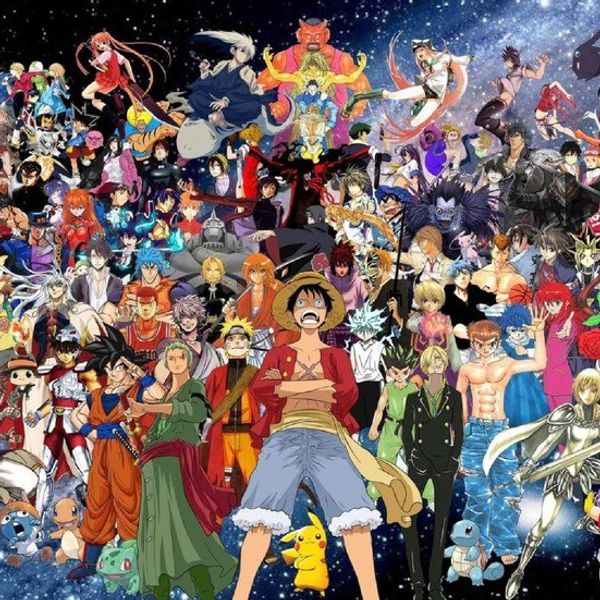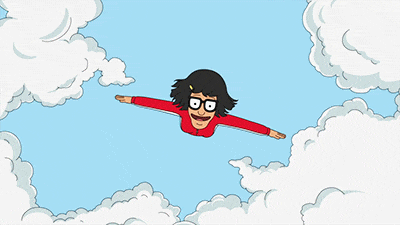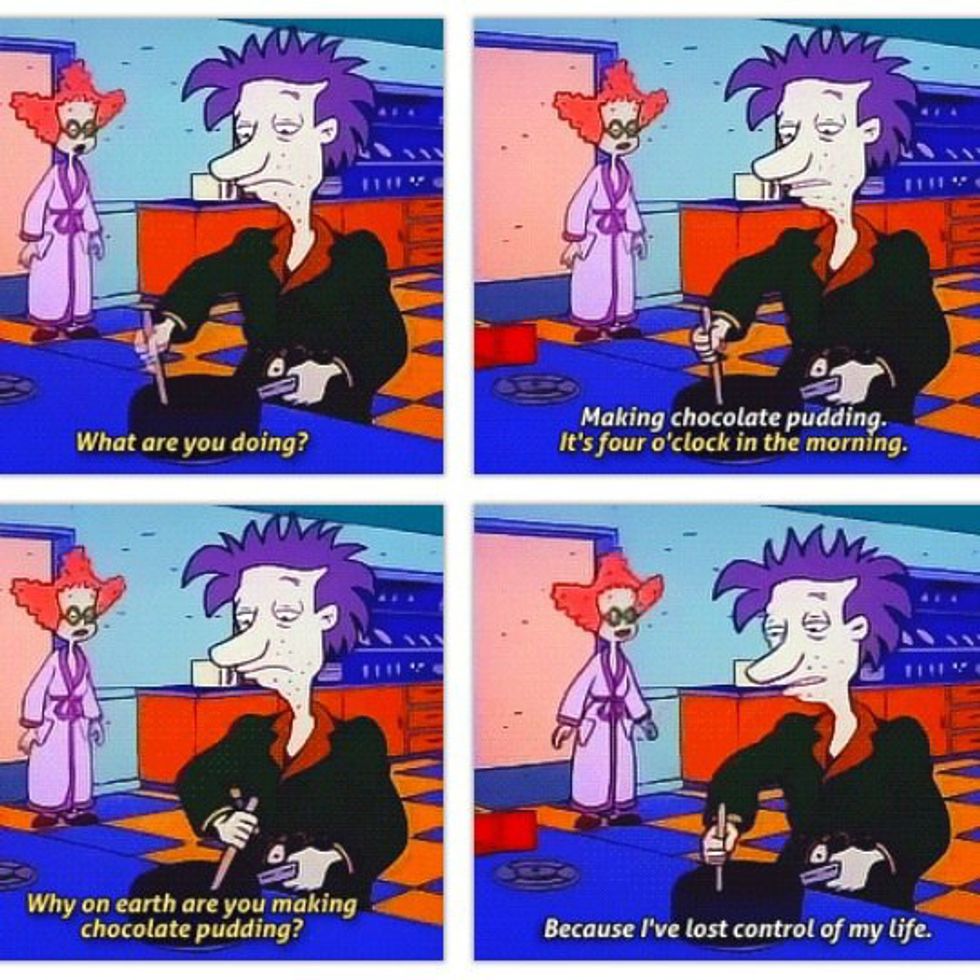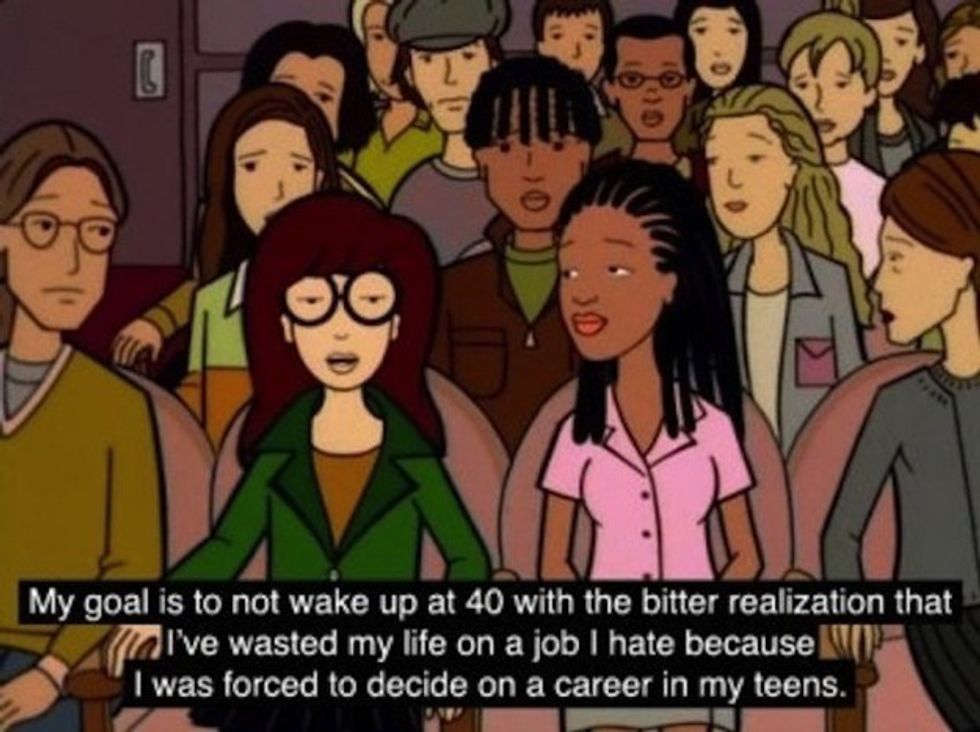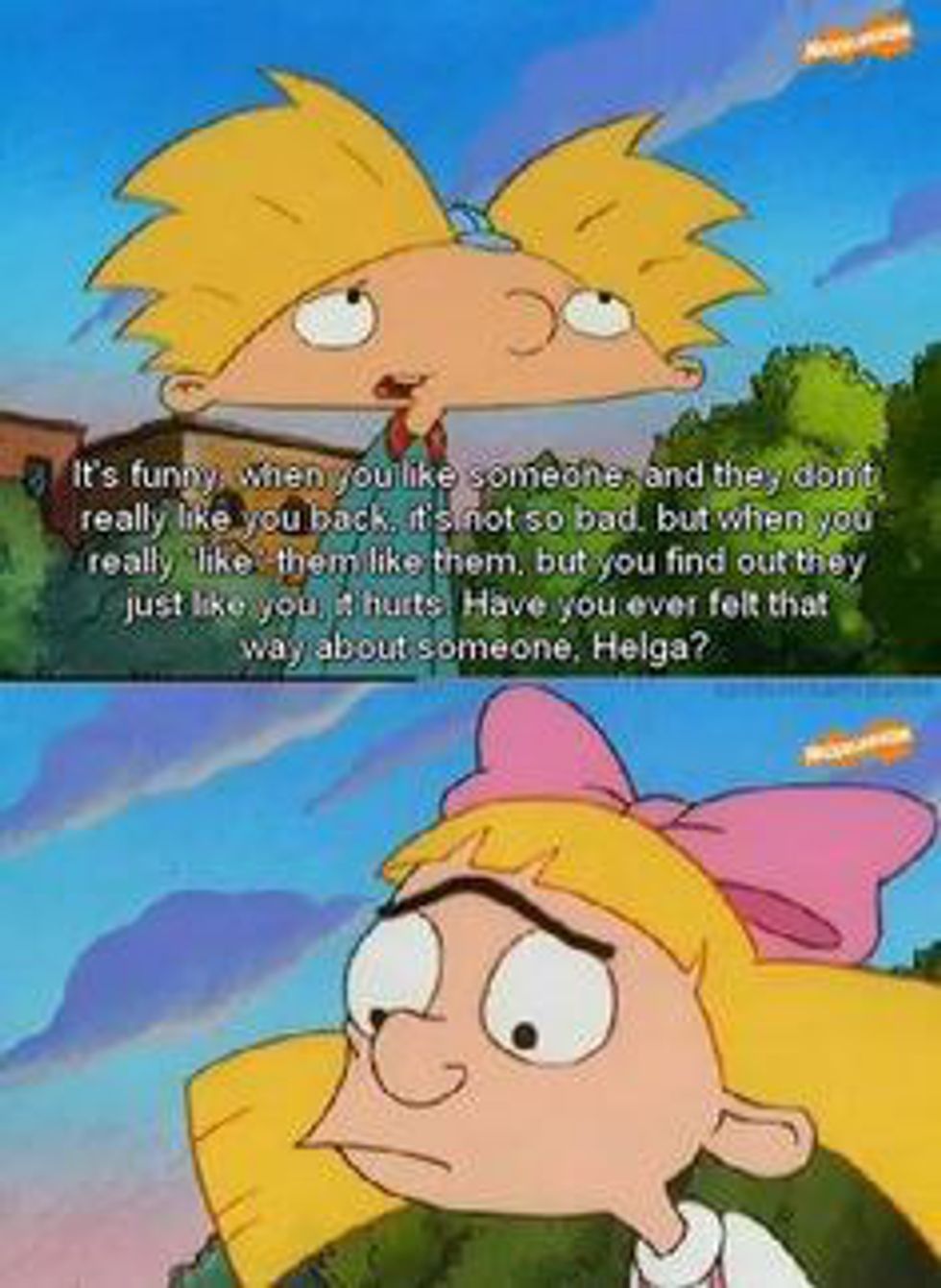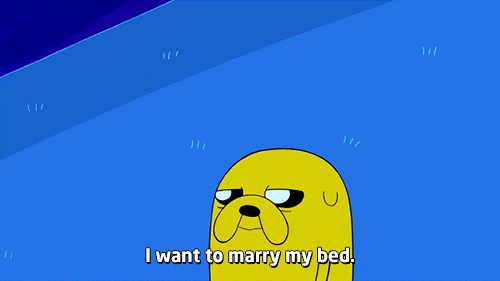At this point in time, it's tiring to try to counter "you know, aren't you a bit too old to still be watching cartoons?" Cartoons are often deemed childish by peers and our elders, despite the distinct history of who cartoons were directed towards and the mature humor that has always been presented. Countless shows and films have been directed towards adult audiences, and this isn't simply millennial marketing at work: this has been a part of television culture since as early as the 60's.
While I loved jumping between 4Kids TV and Disney Saturday morning cartoons as a kid, I also really was rather addicted to the channel Boomerang. As a New York kid with Time Warner growing up, it was all but one station over from Toon Disney, and at one point, my adolescent fingers slipped on the remote, switching from "Disney's Hercules: the Animated Series" to "The Perils of Penelope Pitstop." I was immediately hooked.
It is easy for people our own age to criticize our viewing habits: while they like the remnants of MTV2 and VH1, and probably much more so new-wave Freeform (fare thee well, ABC Family) and CW TV, we find ourselves scrolling through Netflix's animated series, and scouring the depths of Youtube for old episodes of "Kim Possible." On occasion, perhaps a wave of nostalgia will hit, and all of a sudden you remember exactly the insane extent of how long "Scooby-Doo" has been on the air, and that Shaggy, Scooby, and Scrappy had their own movies. Perhaps it goes beyond that, and as a teenager/adult, you've found a place in the company of "Gravity Falls" or "Adventure Time" or any adult-Fox or Adult Swim show out there. So what?
People say it's childish and outdated, lame albeit the "vintage flow." We're told things are geeky unless on-trend and anime seems to be in a two-way tug of "kawaii" and "super-lame." But really, who cares?
People often stick their nose up towards anime, considering it "kids' stuff" due to the marketing of Pokemon and the like to largely child-audiences; however, people tend to forget manga and anime have always been directed towards both children and adults, there being shows that were suited for both, and separately directed toward either audience. Western television pulled from this newly popularized media, of course already of interest through animated film and comic strips, and would become a pinnacle of evening television.
Shows like "The Flintstones" and "The Jetsons" were late-night comedies, meant for the adults after the younguns went to sleep. Production Code era television meant strict laws regarding sex, adultery, crude humor, and general anti-American speech. With the introduction of Hanna-Barbara TV, also being the birthplace of "The Smurfs," "Tom and Jerry," and "Scooby Doo," we had a spike in the risqué nature of television, something that changed the face of television for the rest of time.
While Film Noir often played between the lines of what suited the tightly roped Production Code, and we'd finally break away from these restraints in the 1970s, cartoons were playing with naughty humor during all this time. We might've watched "The Flintstones" throughout the 90's and early 2000's, but it initially aired from 1960 to 1966, and here's just one presentation of Hanna Barbara's animated mod-era dick jokes:
Haha, geddit?
Since the 60's, there have been animated shows directed distinctly for kids and generalized "family TV," to match up with the growing popularity of animation as the late night sitcom. However, there's also been a great deal of shows meant entirely for older audiences. Between the great old "Hanna Barbara" shows, MTV's "Beavis and Butthead" and "Daria" , and Warner Bro's "The Animaniacs" and it's eventual spinoff "The Pinky and the Brain" , there's a plethora of material out there for adult audiences and it's inspired a generation.
It's easy to note how inappropriate even the most seemingly harmless shows of our youth were, but we also see kids shows that played directly into more mature humor constantly. Shows like "Ed, Edd, n' Eddy," "Johnny Bravo" , and "Ren and Stimpy" all played into the adult humor whilst being being more-so "children's television." Even seeing older episodes of Spongebob and Fairly Odd Parents today, we see the now-outrageous jokes that went completely over innocent heads. These are just some of the small reminders that these might be "kids shows", but are still written by adults and had been somewhat made for adults too.
Beyond the outrageous humor of these animations, there's also the fact that a lot of criticism is drawn towards the level of maturity in these shows. Mature humor and maturity are very different things, and people tend to think the value of maturity in shows has been devalued over time. Since early cartoons were adult sitcoms, they generally were filled with adult situations and problems, making them relatable. Shows like "Rocky and Bullwinkle" were war allegories, and many others had political undertones, whereas "The Simpsons" , "South Park," and "Family Guy" 's own critiques seem brash by comparison.
Similar to adult show's senses of engaging in the issues of the time, 90's toons often engaged with social issues for children, teaching us valuable life lessons about social maturity, bullying, math, dealing with death, and so on. "Daria" approached social cues and sense of self-identity in vapid settings, and "Batman the Animated Series" tackled mental health and physical disorders, as well as how grief shapes a person. "Arthur" and "Cyberchase" were just the beginning of school-lesson TV for us, and shows like "The Wild Thornberrys" and "Hey Arnold" mirrored the types of commentaries teen and adult cartoons were showing at the time.
With the changes to cruder humor on Nickelodeon in the later 2000's came the sense of the "downfall" of cartoon television. When "Spongebob" became violent, it seemed we'd hit rock Bikini Bottom. People began to see children's TV as too adult, but only for its crude humor, ignoring the shows that were emerging despite other shows weaker outputs (though this was generally to keep up with generation they were initially marketed for, aka ours). It seemed that when "Avatar the Last Air Bender/The Legend of Korra" and "Futurama" ended, we were at the end of the rope.
The thing is, if you're looking for nods toward old political humor, look no further than "Archer." If you're still looking for solid social messages having to do with sense of self, in recent years "Arthur" has gone strong with discussions of grief, cancer, writer's block, and self-esteem, not to mention an episode dedicated to autism. "Adventure Time" is argued to show an apocalyptic world, and despite the mocking that "My Little Pony: Friendship is Magic<" should only be for children, it pulls in audiences due to it's strong messages that echo those told through Disney and Nick cartoons "back in the day."
While live action Disney has received backlash for supporting gay marriage and gender identity, "Steven Universe" has successfully presented strong female characters in domestic partnerships, a helm recently held by specifically the Japanese version of "Sailor Moon", not the American dub, and become widely popular. "Gravity Falls" has received similar praise for it's mature messages of equality and clever, intelligent humor that didn't treat children as immature. Where live action shows fail to present now as it should be represented, cartoons are overlooked and thusly the best way to deliver reminders of what today is.
What I'm saying is, it really isn't the end of cartoon television. Perhaps this is a sign that certain shows have long since hit their peak (I'm looking at you "Spongebob" and "The Fairly Odd Parents"), but cartoons haven't become suddenly terrible, dark, and inappropriate. The latter two have always been apparent in children and adult television, and there's always been shitty TV. But animation always has been relevant, clever, and directed towards many audiences, and that isn't changing any time soon.

